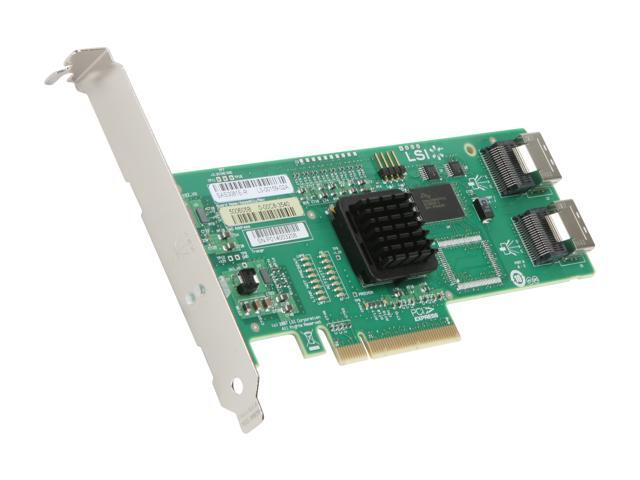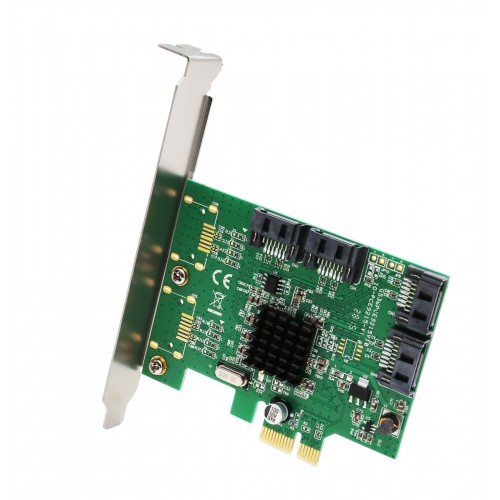Freebsd Device Drivers [FREE EBOOKS] Freebsd Device Drivers [EPUB] [PDF] Download file Free Book PDF Freebsd Device Drivers at Complete PDF Library. This Book have some. Card Marvell 9215 Non Raid with Low Profile Bracket SI PEX40064 RAID Controllers Amazon com FREE DELIVERY possible on eligible purchases.
- Downloads The Clubhouse Bat Cave Forum News Polls Site Suggestions System Usage. Tonymacx86 Tools NVIDIA Drivers Clover Builds Kexts Community Software DSDT Database Archive Rules. A 4-port Syba/IO Crest SI-PEX40064 using the Marvell 9215 controller.
- Buy I/O Crest 4 Port SATA III PCI-e 2.0 x1 Controller Card Marvell 9215 Non-Raid with Low Profile Bracket SI-PEX40064: RAID Controllers - Amazon.com ✓ FREE. I tried both driver off the enclosed CD and driver downloaded off the Internet.
SATA controller vs multiplier?
EDIT - Before reading to far, I think I terribly messed up my topic title /terminology. I'm really looking into the difference between using a RAID controller to add additional SATA ports to my system as opposed to adding an entirely new PCIe SATA controller board (in particular, this one - http://www.newegg.com/Product/Product.aspx?Item=N82E16816124064)
--original post
I'm looking at replacing my HTPC setup (currently a mix of 1,2,3TB drivers) into a software raid-based system. I want to do 6-drives (3TB ea, using 2 of my existing 3TB's drives, 4 new ones), but I also want to have room to grow the array for the future. I only have 6 sata ports on my motherboard.

Si-pex40064 Driver Download For Windows 7
I don't really want to get into HW RAID at this point (mainly due to controller cost), but I need to do something to get some extra sata ports in there for the future.
FWIW, I plan on running this under Debian, RAID-6, i5 3570k and 8-12gb of ram, not sure what I can pull out of other machines at this point, but at least 8GB.
Would you suggest a new SATA controller or a RAID controller, and which one?


Driver Game Download
1. While the SATA ports on the card is capable of SATA III (6 Gb/s or 750 MB/s, where Gb = Gigabit and MB = Megabyte, and 1 Gb = 125 MB), the maximum speed of this card is limited by the 1 lane of PCIe slot, which depends on the version of PCI Express on your motherboard.
2. PCI Express 2.0 supports maximum speed of 4 Gb/s (=500MB/s) for each lane. So the max speed of this card would be 500 MB/s. This is faster than SATA II (375 MB/s) but slower than SATA III (750 MB/s).
3. PCI Express 1.1 supports maximum speed of 2 Gb/s (=250MB/s) for each lane. So the max speed of this card would be 250 MB/s. This is slower than SATA II.
4. The 4 ports on this card share the same PCIe x1 lane. So if all 4 ports are in use, the maximum speed per port is 1/4 of the maximum speed given in (2) or (3).
I have been able to confirm these conclusion by running the following experiment. I am using a Transcend SSD370 512 GB drive, which is advertised to have max read/write speeds of 560/460 MB/s.
To test this SSD's speed, I plug the SSD into an ASUS P8Z77V-LX motherboard, which has both SATA II and SATA III ports.
In the SATA III ports, the max R/W speeds are 504/457 MB/s, as measured by CrystalDiskMark 3.0.1
In the SATA II ports, the max R/W speeds are 275/262 MB/s.
Now, I plugged the SSD into the PEX-40064, and put it into the PCIe x1 slot, which is compatible with PCI Express 2.0. The max R/W speeds are 385/286 MB/s
So, the PEX-40064 is capable of delivering a higher speed than SATA II, but far from SATA III (read on if you have PCI Express 1.1).
I ran the same tests on an older motherboard -- Gigabyte P35-DS4, which has only SATA II ports and supports PCIe Express 1.1
In the SATA II ports, the max R/W speeds are 260/254 MB/s, similar to those in the SATA II ports of the newer ASUS board.
I then plugged the SSD into the PEX-40064, and put it into the PCIe x1 slot of the older P35-DS4 board: The max R/W speeds are 202/168 MB/s
Indeed, the PCI Express 1.1 slots are slower than the PCI Express 2.0 slots and the SATA II ports.
Conclusion: Where does this leave us?
-If you have a motherboard that has SATA II ports (but no SATA III ports), and you have PCI Express 2.0 slots, then you can use the PEX-40064 card to get a faster speed (if your SSD can achieve it) but you will not get close to SATA III speeds (even if the SSD is capable to achieve it).
-If you have a motherboard that has SATA II ports but no SATA III ports, and you have PCI Express 1.1 slots, then you are better off using the SATA II ports than the PEX-40064 card.
-If you are using the older magnetic spin hard drives (HDDs), then this discussion is not relevant. Most of my HDDs rarely achieve sustained R/W speeds above 100 MB/s.
-In my experience, the PEX-40064 card tends to freeze up in the PCIe 1x slot when I transfer large amounts of data (more 10 GB). But if I put the PEX-40064 card into a PCEe x16 slot, I rarely encounter freeze up. I don't know how to explain this, since the card uses only 1 data lane, regardless of how many data lanes are available in the PCIe slot. I ask tech support about this but I did not get an explanation.
Hope all of this is helpful.
AFTER THOUGHT: To get faster than SATA II speeds for motherboards with PCI Express 1.1 slots, here is what I would do. Switch from the PEX-40064 card (which uses 1 PCIe lane) to the PEX-40054 card (which uses 2 PCIe lanes). This turns out to work !! The Transcend SSD370, plugged into a PEX-40054 card in a motherboard supporting PCI Express 1.1, has the following max R/W speeds: 373/285 MB/s. This is almost the same as the PEX-40064 card with PCI Express 2.0. The only downside is that the PEX-40054 works in a PCIe x4, x8, or x16 slot, but not in a PCIe x1 slot.
SECOND AFTER THOUGHT: It is possible to achieve close to SATA III speeds in a motherboard with PCI Express 2.0 slots with more than 2 data lanes (e.g. x4, x8, or x16) with the PEX-40054 card instead of the PEX-40064 card. For the Transcend SSD370, the max R/W speeds are 479/458 MB/s, very close to the speeds of the SATA III port in the new ASUS board.